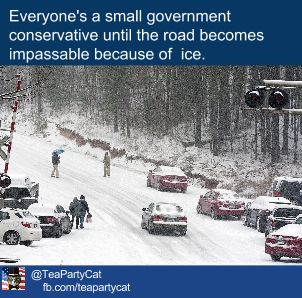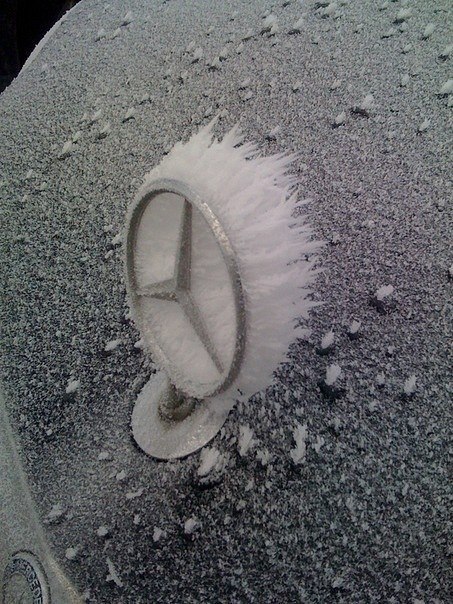Weather, or Not category archive
Nor Any Drop To Drink . . . . 0
Collateral damage:
At least there’s enough water left for skinny-dipping.
Barely.
Lupin Lodge, the clothing-optional resort in the parched wooded hills above Los Gatos, is perilously close to running out of water. So close that it’s landed on California’s official drought-watch list as one of five community water districts forced to haul in weekly truckloads of H2O.
Bare facts at the link.
The Climates They Are a-Changing 0
California is sinking into the sea, just not in the manner that many predicted.
Vlot’s wells are collapsing, crushed by the shifting soils. The dam Hurley depends on to divert water into the company’s canals from the San Joaquin River has sunk so far – about 3 feet in just five years – that the river is threatening to spill over. If that happens, he’ll have less water to distribute to farmers who grow cotton, tomatoes and a range of other crops.
Cali’s not the only place with that sinking feeling.
Good News, Bad News. 0
Here’s the good news:
The bad news: the amount of the award was $250.00.
That Sinking Feeling 0
From today’s local rag:
(snip)
“Jamestown Island is mostly less than 3 feet of elevation,” she said. “If the high projection is correct, then in 50 years, it would be predominantly under water.”
Levees would do nothing to help, she added. “The water’s actually coming up through the ground as well,” Mitchell said. “It’s a very spongy sort of ground. Just building a levee around it won’t keep the water out.”
I have nothing to add. Just read the rest.
The Climates They Is a-Changing, Reprise 0
The big headline in today’s local rag (pictures at the link) was about the violent rain and severe flooding yesterday. I measured three inches, most of which fell in a three hours, in my rain gauge.
Shell-Lacked 0
We are klling nature, and nature is preparing to retaliate.
(snip)
Until now, the impact on marine species from increasing ocean acidity because of climate change has been something that was tested in tanks in labs, but which was not considered an immediate concern such as forest fires and droughts.
The new study, published in the Proceedings of the Royal Society B, a scientific journal based in England, changes that.
We Had a Bit of a Blow Last Night 3
Stop it! That’s “a blow,” not “some blow.” Also, winter seems to be back.
Picture at the link.
That Sinking Feeling 0
(Short commercial that will make you think of this at the beginning.)
Read the accompanying article.
Afterthought:
We were wrong. Cali will not fall into the sea because of an earthquake. It will sink into oblivion because of climate change.
It is likely not a good idea to build farms in a desert.
Stormy Weather 0
I remember that, after 1962’s Ash Wednesday Storm, my father drove us to Chincoteague, where we saw commercial fishing boats sitting high and dry in persons’ back yards.
Normal nonsense resumes tomorrow.
Afterthought:
If you have not seen commercial fishing boats, they are not small.
The Climates, They Are A-Changing . . . 0
It’s February in the Mid-Atlantic States.
Two weeks ago, we had eight inches of snow and temperatures in the Fahrenheit twenties. Yesterday, it was 70 Fahrenheits. And it’s still February. I grew up in these parts and can testify that this is not How It Used To Be.
In the Bangor Daily News, Gwynne Dwyer has a theory.
. . . it was the people of the rich countries in the temperate zone – North America, Europe and Japan, mainly – who industrialized early and started burning large amounts of fossil fuel as long as two centuries ago. That’s how they got rich. Their emissions of carbon dioxide over the years account for 80 percent of the greenhouse gases of human origin that are now in the atmosphere, causing the warming, yet they get hurt least and last.
Well, what did you expect? The gods of climate are almost certainly sky gods, and sky gods are never fair. But they have always liked jokes, especially cruel ones, and they have come up with a great one this time. The people of the temperate zones are going to get hurt early after all, but not by gradual warming. Their weather is just going to get more and more extreme: heat waves, blizzards and flooding on an unprecedented scale.
Snow Job 0
The Charlotte Observer’s Mark Washburn tees off on media’s hysterical reaction to the possible appearance of a random snowflake. A nugget:
I can assure you that in anticipation of the catastrophe, we at the newspaper have larded up on typographical bullets
• Like this so
• We can reliably deliver
• All sorts of goofy lists on how to survive.
Follow the link for a battery of survival tips.
By the Numbers 0
My local rag rounds up some snowy statistics. A nugget (emphasis in the original):
376 million – cubic feet of natural gas delivered to customers between 10 a.m. Tuesday and 10 a.m. Wednesday by Virginia Natural Gas. That’s a record.
6 – degrees Fahrenheit, Thursday’s record low temperature for that date in history, set at Norfolk International Airport.
Also, they point out, 0 . . . jack-knifed tractor-trailers.
Read the rest.
A Picture Is Worth 0
Headline: The state of Georgia utterly failed Atlanta, and then sought to blame forecasters.

Taxes are the price of living in civilized society.
Image via BartCop.
Plants with Pointy Hats 0
Somewhere under all this stuff are three dozen assorted pansies.

This is a beach resort that seldom gets much snow, let along 8.5 inches of dry powder. The neighborhood kids were using their boogie boards as sleds.
For a bit of perspective, note that Nevada is having its hottest winter in years . . .
Highs have the potential to surpass records of 71 degrees for Jan. 29 set in 1976 and 72 degrees for Jan. 30 set in 1971, Weather Service meteorologist Chris Outler said.
. . . and Cali is becoming a dry state.
Wells are running dry or reservoirs are nearly empty in some communities. Others have long-running problems that predate the drought.









